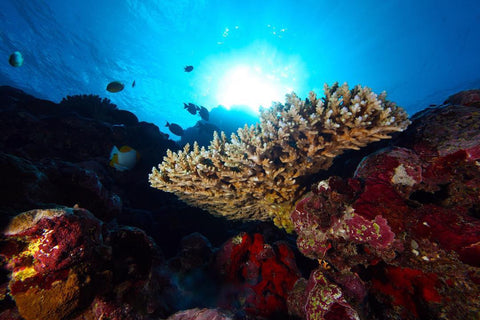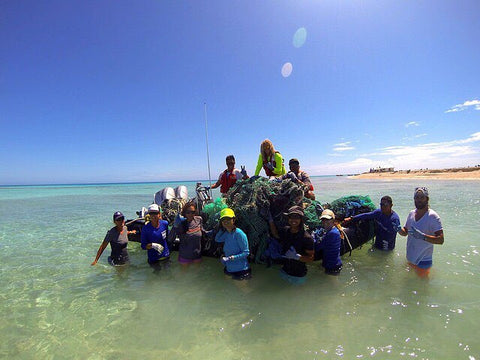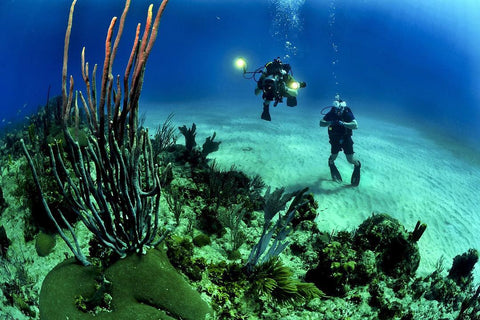When people ask at work what you’re doing for the weekend, how many times do you answer with something beach-related? 3 times out of 10? 10 out of 10? Going to beautiful beaches and enjoying beach culture is part-and-parcel of a Sydney-sider’s way of life. Getting to relax and unwind in Australia’s incredible beaches and swim in pristine ocean water are some of the best things about living downunder.
The MAJOR problem here: pollution is building in the world’s oceans at an alarming rate.
GETTING DOWN TO THE (S)PACIFICS

Here are a few stats about the world’s oceans that might make you cringe a bit (but don’t worry it’s for a purpose).
Plastic is the most common element found in the ocean; there is actually a garbage island floating in the Pacific Ocean that’s twice the size of Texas – it’s called the ‘North Pacific Gyre’.
Another issue is plastic doesn’t break down naturally in the ocean. Instead it breaks down into millions of tiny pieces called ‘micro-fibres’. These micro-fibres absorb the toxic chemicals already polluting the ocean, so when fish eat micro-fibre plastic, they consume those toxic chemicals too. Fish, as well as mussels, oysters etc. are consistently found with plastic micro-fibre in their bodies these days, which means, yep, we are poisoning ourselves whenever we eat seafood.
Wondering why eating seafood is still legal? Rolf Halden from Arizona State University’s Center for Environmental Security states “Currently there are no [health advisory] regulations for plastics and plastic-borne pollutants, as the science is still young.”
WANT TO HELP?

We can all do small things to help out the ocean. Firstly, make safe, sustainable seafood choices. Secondly, share blogs like this on social media, to raise awareness for World Ocean Day on June 8. Finally, buy fewer petroleum-based, non-biodegradable plastics. Get informed as to what products are biodegradable and eco-friendly (check out our materials glossary to find out about helpful biodegradable substitutes and their properties). And, if you are shopping around for plastic products, consider supporting those brands and food packaging suppliers who supply biodegradable plastic choices.
WHICH WHOLESALEPAK PRODUCTS ARE OCEAN-FRIENDLY?

To see where WholesalePak keeps it’s eco-friendly, biodegradable packaging materials, click on our eco-packaging page. There you’ll find a huge variety of eco-plastics to substitute from your traditional petroluem-based ones. Check out our plastic eco-cups, our sugarcane containers, INEGO PLA salad bowls and plenty more.
Please share this post or any other shareable content that’s related to World Oceans Day on June 8th this year. Get the hashtag #worldoceansday going. If you’re a cafe or restaurant, consider making the switch to greener food packaging. The more we care and make simple simple choices towards a healthier planet, the better for us and the fish.